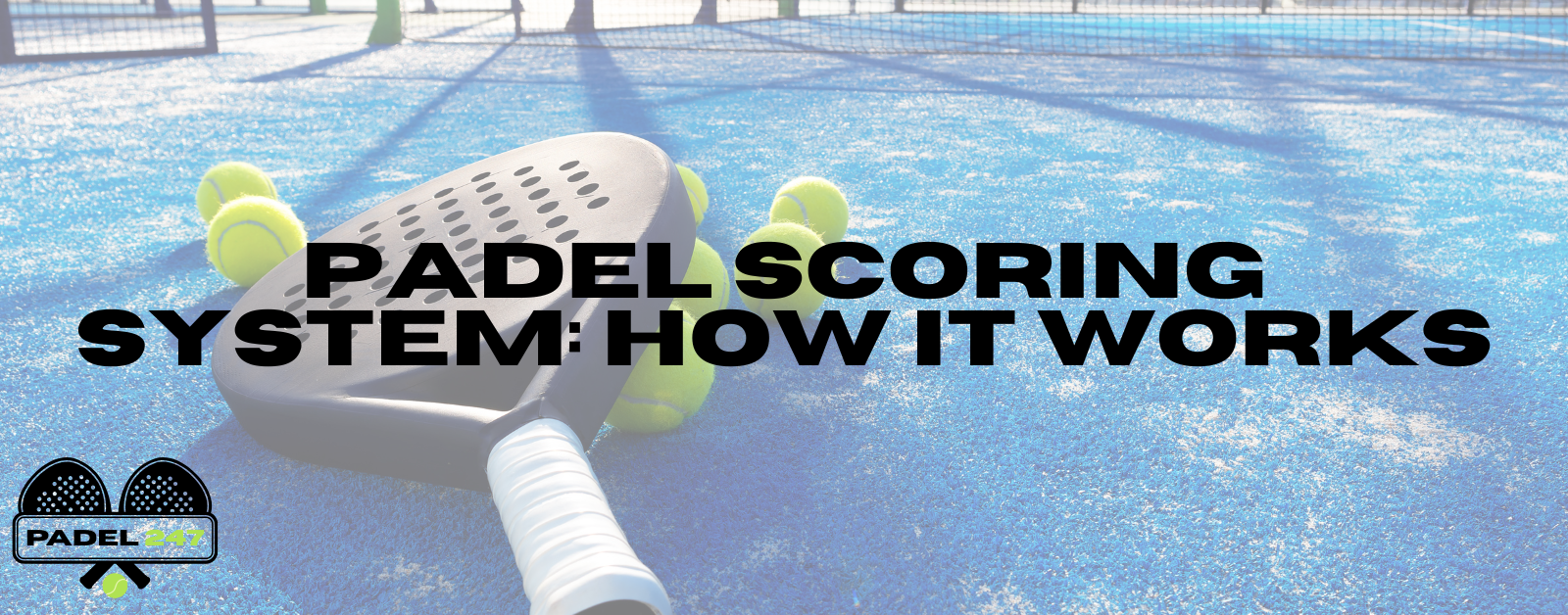Padel is one of the fastest-growing sports in the world, combining elements of tennis and squash into a fun, fast-paced game.
While the rules of play are simple to pick up, many beginners get confused when it comes to scoring. The good news? If you’ve ever watched or played tennis, you’ll notice the padel scoring system feels very familiar.
In this guide, we’ll break down exactly how scoring in padel works – from points and games to tie-breaks and special rules like the Golden Point.
⚡ Quickfire Padel Scoring System Summary
Points:
🎾 Same as tennis → 0 (Love), 15, 30, 40, then Game (must lead by 2).
Games & Sets:
🎾 A set = first to 6 games (win by 2).
🎾 Matches are usually best of 3 sets.
Deuce & Advantage:
🎾 At 40–40 → “Deuce”.
🎾 Win 2 points in a row = game won.
🎾 Lose one after advantage = back to deuce.
Tie-breaks:
🎾 Played at 6–6 (first to 7 points, must lead by 2).
Golden Point (optional rule):
🎾 At deuce, one deciding point determines the game.
The Basics of Padel Scoring
Padel uses the same point structure as tennis:
- 0 points = “Love”
- 1 point = 15
- 2 points = 30
- 3 points = 40
- 4 points = Game (if a two-point lead is reached)
So, if the serving team wins the first point, the score is 15–0. If both teams win two points each, the score is 30–30, and so on.
Games, Sets, and Matches
A padel match is made up of games, which form sets, and usually best-of-three sets decides the winner.
- To win a set, a pair needs to win 6 games with at least a two-game lead (e.g., 6–4).
- If the score reaches 5–5, the set continues until one team leads by two games (7–5) or a tie-break is played.
- Most professional and amateur matches are played as best of 3 sets.
Deuce and Advantage
When both sides reach 40–40, it’s called deuce. At this point, one team must win two consecutive points:
- Win the first point after deuce = Advantage.
- Win the next point = Game won.
- Lose the next point = back to deuce.
This can repeat several times, making deuce games some of the most exciting moments in padel.
Tie-Break Rules
If a set reaches 6–6, a tie-break is usually played:
- Points are counted as 1, 2, 3… instead of 15, 30, 40.
- The first team to reach 7 points with a 2-point lead wins the tie-break (e.g., 7–5, 8–6).
- The winner of the tie-break wins the set 7–6.
The Golden Point Rule
Many padel tournaments now use the Golden Point Rule to speed up matches.
- At deuce (40–40), instead of playing advantage, the next point decides the game.
- The receiving team chooses whether the serve is taken to the left or right side.
- Whoever wins that point wins the game.
This rule keeps matches exciting and fast-paced while adding an extra layer of strategy.
Serving Rules and Their Impact on Scoring
Serving in padel alternates between teams:
- One player serves for an entire game.
- The serve then switches to the opposing team.
- Within each pair, players alternate who serves first at the start of each set.
Since holding serve is crucial in padel, serving strategy can play a big role in the overall scoreline.
Recreational vs. Professional Scoring Formats
While professionals stick to the standard format (best of 3 sets, tie-breaks at 6–6), recreational players often use shorter versions, such as:
- Fast4 format – sets played to 4 games.
- Timed matches – whoever is leading when time runs out wins.
These variations make padel more accessible for casual play while keeping matches competitive.
Tips for Beginners to Keep Track of the Score
- Call the score before every point to stay on track.
- Use a padel scoreboard if available (many courts provide them).
- Download a scoring app to track games, sets, and match progress.
With practice, the scoring system becomes second nature.
Conclusion & Summary
The padel scoring system may seem tricky at first, but once you understand the basics, it’s straightforward.
Just remember: games follow the 15–30–40 system, sets are played to 6 games with a two-game lead, and tie-breaks or the Golden Point keep things fair and fast.
Mastering the scoring not only helps you enjoy playing but also makes watching professional padel even more thrilling.



